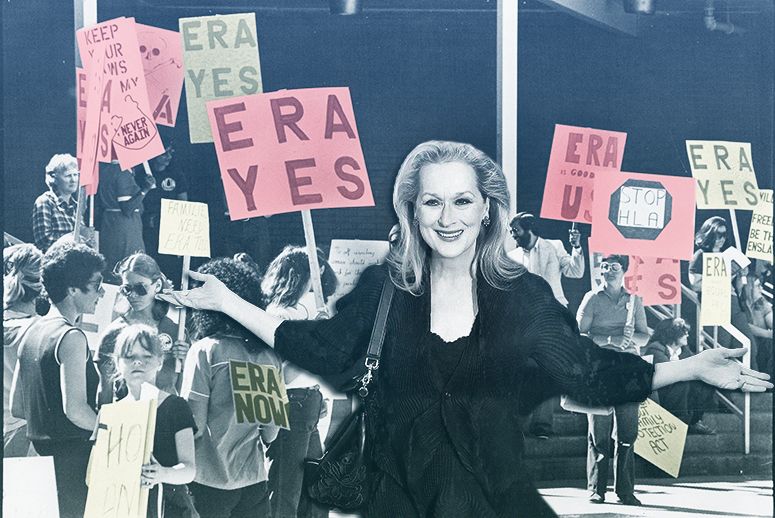Meryl Streep Wants You to Know Gender Equality Still Isn’t Guaranteed by the Constitution
The actor sent letters to Congress to urge it to pass an amendment that has been stalled for decades.
With a Meryl Streep movie about the early-20th-century British women’s suffrage movement in the works, it may seem like the fight for women’s rights is a thing of the past—a historical moment ripe for Hollywood dramatization.
But in America, an amendment proposed by suffragist leader Alice Paul in 1923 has yet to be added to the Constitution. It took 49 years for the Equal Rights Amendment to pass both houses of Congress in 1972, but without ratification from three states, it was never approved.
Since then, the amendment has been reintroduced in Congress every legislative session without success. Streep, a champion of women’s rights and the recent founder of a a screenwriting program for women over 40, is bringing visibility to the stalled amendment.
On Tuesday, she delivered personalized letters urging each member of Congress to pass the ERA once and for all. She also enclosed copies of the book, Equal Means Equal, which uses interviews, anecdotes, and Supreme Court cases in which women were denied justice to argue that gender equality needs to be clearly guaranteed in the Constitution.
“The United States is one of just 32 countries whose constitution lacks that basic provision—an omission that seven in 10 Americans were not aware of…”
The book’s author is Jessica Neuwirth, president of the Equal Rights Coalition, an advocacy group founded last year with the goal of reviving interest in and passing the ERA, which few Americans realize was never added to the Constitution. In an interview with TakePart, Neuwirth called Streep “a natural” spokesperson for the cause, in light of her lengthy track record of supporting women’s rights.
“I think we just need something fundamental like the ERA in the Constitution, and it will help everyone fighting in all these different battles,” says Neuwirth, adding that it is one of the few bipartisan issues that has gained support in Congress from Republicans and Democrats alike. “The hope is that members of Congress will be there and will join together.”
So, Why Should You Care?
The U.S. trails behind other nations in guaranteeing fundamental legal protection for women. About 84 percent of global constitutions explicitly guarantee gender equality, according to the World Policy Forum. The United States is one of just 32 countries whose constitution lacks that basic provision—an omission that seven in 10 Americans were not aware of, according to a 2001 survey touted by Congresswoman Carolyn B. Maloney, an active supporter of the ERA.
The deadline to amend the ERA expired in 1982, when Neuwirth was still in college. The primary opposition came from conservative activists such as Phyllis Schlafly, who argued that passage of the ERA would abolish traditional gender roles, requiring the draft of women into military combat and upholding same-sex marriage. Neuwirth says those arguments are severely outdated. A policy prohibiting women in combat in the U.S. Army was overturned in 2013, and the Supreme Court is set to vote on the legality of same-sex marriage any day, while more than half of the nation’s states have already legalized it.
“I think [the ERA] is really just not on the radar screen [of most Americans],” Neuwirth told TakePart. “It’s good that it’s coming back, and people are aware of it, and the more people know that they don’t have a constitutional right to equality,” the better the ERA’s chances of passing in Congress.
“That’s why I wrote the book—I’m trying to explain why we need it,” she said. “To me it’s very clear: We don’t have equality.”
Source: TakePart
Photo-illustration: Lauren Wade
